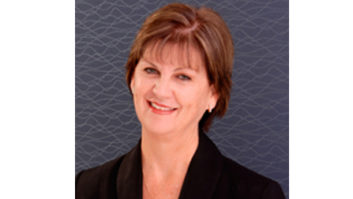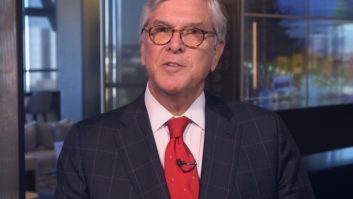Water fountain talk about the latest and greatest band, hit song or undiscovered artist is fun. Everyone has an opinion.
But bring up the topic of the copyright laws that govern how Americans access music and your colleagues will quickly beat a path back to their desks.

Copyright laws date back to the birth of our nation, enacted both to protect the works of creators and to advance the common good. For musical works, copyright started with sheet music, followed by player pianos and eventually changed to accommodate recorded music. As with any law in any industry, businesses and business models in the music industry have adapted to the copyright laws that exist to enable agreements, contracts and the flow of money to compensate all sectors of the industry. It’s a complex ecosystem that has evolved over decades.
Now, enter the music labels who want Congress to change just one part of copyright law to their benefit by imposing hundreds of millions of dollars in new fees on radio stations in order to create a new revenue stream for them. This is in addition to the hundreds of millions of dollars that radio stations and other businesses that play recorded music already pay annually.
Remember the game pick-up sticks? The object was to remove a stick from the pile without disturbing the remaining ones. Similar to pick-up sticks, the record labels’ attempt to make a one-sided change to copyright laws by shifting hundreds of millions of dollars from local radio stations to their own coffers will have unintended consequences. It’s undeniable.
In the end, radio stations that serve local communities and their listeners will lose.
Supporters of the change like to tout the legislation’s exemptions or caps on fees for small or non-profit radio stations. To that we say, “Camel’s nose under the tent.” Once a new fee is enacted, there is only one direction the fee will go and that is up.
Moreover, it’s not just about the money.

Think about the record keeping that would be required for a college broadcast station, for example. These stations are often freeform and their playlists may be written on scraps of paper. Yet, the hundreds of college radio stations in America do a great job of bringing local bands and artists to their listeners. That’s serving the common good.
The Free Radio Alliance was formed to serve as the voice for radio stations of all sizes and types, from single stations to college radio stations to farm broadcasters and beyond — many of whom don’t otherwise have a voice in Washington. In fact, more than 40 percent of the organizations that have joined the Free Radio Alliance are not members of any other organization that is speaking out on the issue.
The FRA is not only an advocate for radio stations, it also represents other businesses that understand that putting a new fee on radio stations is the perilous first step in extending the new fee to all businesses that play recorded music.
In a world where more and more music sources are pushing consumers toward pay models, radio stands out as the exception whose model is to provide listeners the best in music, all for free.
The Free Radio Alliance is a coalition whose mission is solely to oppose the imposition of a performance tax. We are a member-driven organization and do not have a director or president. While many of our members are also members of the National Association of Broadcasters, approximately 40 percent, by organization, are not NAB members.
NAB has provided the seed money to re-launch the Alliance and is likely to provide on-going support. The positions taken by the organization are determined by the membership as a whole.
Peggy Binzel is spokesperson for the Free Radio Alliance, a coalition “advocating to keep radio and other businesses that play recorded music strong for communities across the nation by opposing a performance tax.” Its website is www.fradioalliance.org. She is also principal at the Podesta Group.
Comment on this or any story. Post a comment online or email [email protected] with Letter to the Editor in the subject field.







